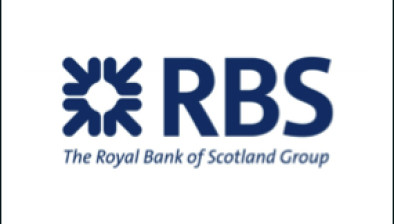RBS: Hiring activity continues to decline across Scotland in April

According to the latest data from the Royal Bank of Scotland Report on Jobs, hiring conditions across Scotland deteriorated at the start of the second quarter.
Sharp and accelerated contractions were recorded for both permanent placements and temp billings as lingering economic uncertainty impacted recruitment plans. At the same time, candidate availability fell further - albeit at softer rates than seen for much of the last two years - amid reports of general skills shortages and an increased reluctance among workers to take on new roles due to the prevailing economic climate.
Consequently, pay pressures continued to build in April, with both starting salary and temp wage inflation accelerating from March as firms bid higher to attract suitably-skilled candidates. Lastly, growth of demand for permanent staff continued to cool, while temp vacancies fell for the fourth straight month.
The number of permanent placements across Scotland fell for the third consecutive month in April. The rate of contraction steepened from March, signalling a marked decrease in permanent new joiners. Anecdotal evidence attributed the latest downturn to skill shortages as well as current economic uncertainty, which had led to greater caution among both clients and candidates.
Scottish recruitment agencies’ billings from the employment of temporary staff fell rapidly at the start of the second quarter, thereby extending the current run of contraction to seven months. The respective seasonally adjusted index ticked down from March and was among the lowest readings seen since the initial phase of the COVID-19 pandemic. When explaining the drop, recruiters mentioned labour scarcity and project delays.
The decrease in temp billings in Scotland contrasted with a strong and accelerated expansion across the UK as a whole.
The availability of permanent staff in Scotland contracted for the twenty-seventh successive month in April. Recruiters often blamed the subdued economic climate for lower candidate supply. Though the rate of deterioration eased notably from March to the weakest in 25 months, the fall contrasted with an improvement in candidate numbers at the UK level for the second straight month.
As has been the case since March 2021, short-term candidate availability across Scotland contracted in April. The pace of decrease quickened slightly from March but was the second-softest in the aforementioned sequence. The latest reduction was linked to general labour shortages, Brexit and an increased reluctance among workers to seek new roles due to worries over job security.
April data highlighted a marked rise in salaries awarded to permanent new joiners across Scotland. The rate of growth quickened slightly from March’s near two-year low, but was softer than the average recorded in the current 29-month sequence of inflation. Recruiters often noted that salaries were increased in line with rising living costs and to attract scarce candidates.
Scottish recruiters reported a sharp and accelerated rise in temp wages during April. The rate of temp wage inflation was the fastest seen since the start of 2023. The latest upturn in pay was attributed to the higher cost of living.
April data signalled a solid rise in the number of permanent vacancies across Scotland. However, the rate of increase was the softest seen since the current period of expansion began in December 2021.
Of the eight monitored sectors, IT & Computing recorded the sharpest rise in vacancies followed by Accounts & Financial.
Temp staff vacancies fell modestly across Scotland in April. Furthermore, the rate of decrease was the slowest in the current four-month sequence of contraction.
Sector data indicated that the decrease was led by marked falls in demand across the Executive & Professional and Engineering & Construction categories.
Sebastian Burnside, chief economist at Royal Bank of Scotland, said: “The latest data revealed a further deterioration in the health of the Scottish jobs market in April, as recruiters registered reduced hiring activity for both permanent and temp staff.
“The drop in recruitment reflected current market conditions, as the uncertain economic climate was said to have weighed on firms’ hiring plans. Filling roles also remains difficult, as ongoing skill shortages and a further drop in overall candidate availability continue to limit recruiters’ abilities to match people with vacancies.
“Competition for scarce talent exerted further upward pressure on pay. Firms were willing to raise their offers in order to attract and secure candidates with the right skillset, with April data signalling sharp increases in both starting salaries and temp hourly wages.”









